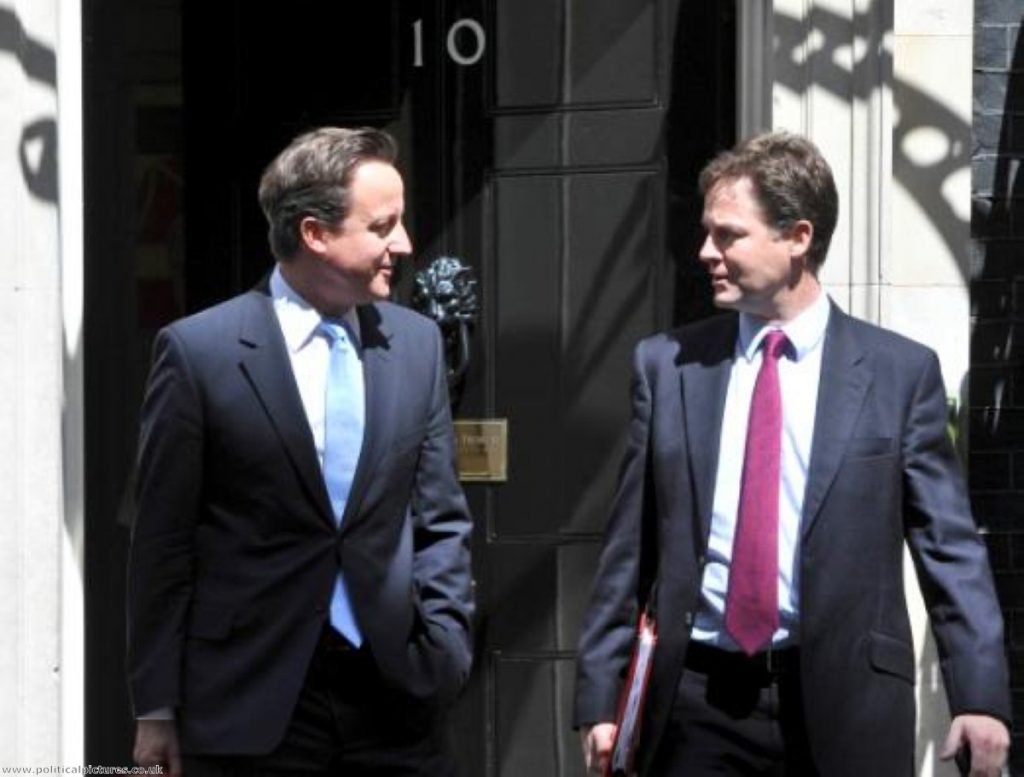Analysis: From one crisis to another
If there's one thing ministers don't want, it's another disaster like the NHS reforms fiasco. Could the public sector pensions clash be the coalition's next humiliation?
By Alex Stevenson Follow @alex__stevenson
The last two months have been dominated by the NHS reforms retreat. Having come up against a brick wall of opposition from doctors, nurses and every other kind of healthcare professional, an unprecedented 'listening pause' was deployed to help reverse the huge changes proposed in the health and social care bill. Last week David Cameron and Nick Clegg unveiled the outcome, an embarrassing reversal for the Conservatives which sees all of the most controversial proposals abandoned. The one thing the coalition doesn't need is another setback.
How unfortunate, then, that last week also revealed the next big headache faced by the coalition. Up to 750,000 public sector workers are going to strike on June 30th to protect their pensions. They're going to have to wait till they're 66 before they can begin collecting them. In the meantime they'll need to increase their pension contributions, too. Such is the strength of feeling that even the moderate Association of Teachers and Lecturers union has backed a walkout.


The National Union of Teachers' general secretary, Christine Blower, has told <i>politics.co.uk</i> that the 'non-consecutive' strike authorises her to implement any number of one-day actions. The impact will be different up and down the country, depending on the number of teachers who belong to unions. If several strikes take place in quick succession, a real impact could begin to be felt.
The pensions issue isn't the same as the NHS fiasco, however. Andrew Lansley's dramatically quick drive towards competition was a U-turn waiting to happen from the start. But we're unlikely to see ministers with their tail behind their legs when it comes to the unions.
Policy wonks admit that Cameron's initial style of government – letting his ministers do their jobs without pestering them – paved the way for some sort of terrible setback. By the time Lansley's white paper had been published, and even after the first draft of the health and social care bill emerged, it was too late: the cat was out of the bag. Cameron managed to find a way out, through the innovative – if desperate – 'listening pause' ploy. He even managed to hand his struggling deputy, Nick Clegg, a policy 'win' in the process. You'd have to be mad to think this was always the plan, though.
By contrast, Cameron always knew he would have to deal with public sector pensions. That's why he deployed the independent review from No 10's playbook. Persuading John Hutton, the former Labour work and pensions secretary, to assess the issue effectively blunted the opposition's scope for partisanship. It demonstrated that there was a problem which needed addressing, hard though that would be.
That has not prevented the unions putting up a fight, of course. But they are a more easily defeated foe than the enemy within, the Liberal Democrats, who dug their heels in on NHS reform and forced Cameron's compromises to go much further than he would have wished. When it comes to public sector pensions, the Lib Dems are locked in. They're not after a policy victory on this, only to survive. It was, after all, Lib Dem Danny Alexander whose rhetoric fanned the flames just two days ago.
The steely resolve of the Tory-Lib Dem tie-up is nowhere seen more firmly than on dealing with the deficit. Public sector pensions are a key part of this. Unlike the NHS reforms, which were a question of extent and therefore subject to erosion, there is very little ground for ministers to give.
That explains why talks with union leaders aren't going well. Both sides are marshalling their forces for what some are already dubbing a 'summer of discontent' – an evocative, if misleading, phrase. This isn't 1978, when a minority administration cowered before the power of organised labour. It's 2011. A firmly united coalition is in power. The safe money is on the unions, not the government, to be wilting as the summer confrontation drags on.

